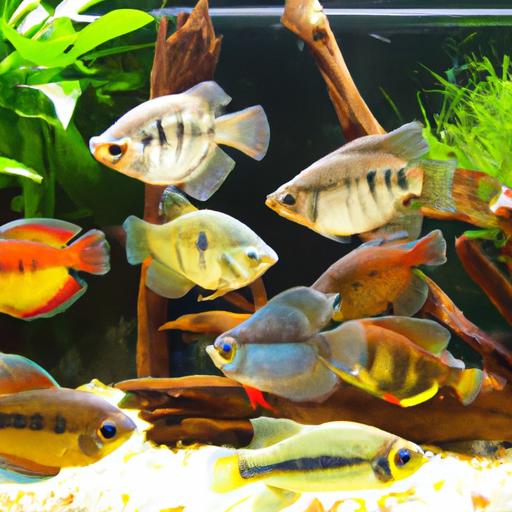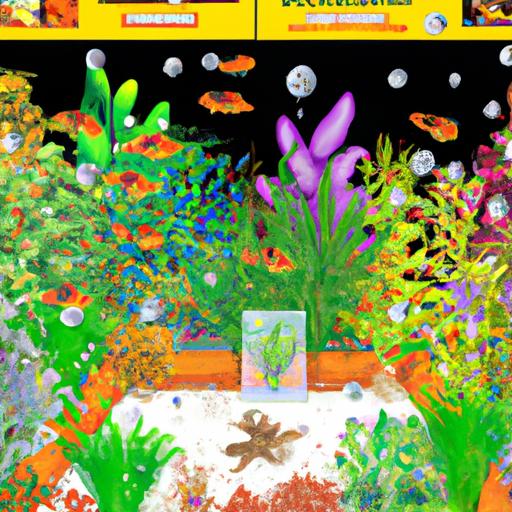
Successfully Keeping Endangered Freshwater Species
Learn effective methods for successfully keeping endangered freshwater species from the brink of extinction. Preserve habitats, control invasives, and promote awareness.
Introduction
In the face of rapidly declining populations of freshwater species, the need for effective conservation efforts has become more critical than ever. These fragile ecosystems are home to a diverse array of plants and animals, playing a vital role in maintaining the balance of our planet’s biodiversity. In this article, we will explore the key methods for successfully keeping endangered freshwater species from the brink of extinction.

Methods for Successful Conservation of Endangered Freshwater Species
Habitat Preservation and Restoration
One of the most crucial steps in safeguarding endangered freshwater species is preserving and restoring their natural habitats. Wetlands, rivers, and lakes provide essential breeding grounds and resources for these fragile organisms. By implementing measures to protect and restore these habitats, we can create safe havens for endangered species to thrive.
Implementing Sustainable Fishing Practices
Unsustainable fishing practices have had devastating effects on freshwater species. Overfishing and destructive techniques can deplete populations and disrupt ecosystems. By promoting sustainable fishing practices, such as catch limits, protected areas, and selective fishing methods, we can ensure the long-term survival of endangered species while supporting the livelihoods of local communities.
Monitoring and Controlling Invasive Species
The introduction of non-native species has caused significant harm to freshwater ecosystems worldwide. Invasive species can outcompete native species, disrupt food chains, and alter habitats. Monitoring and controlling the spread of these invaders are vital for protecting endangered species. Early detection, rapid response programs, and the establishment of biosecurity measures can help prevent further damage.
Promoting Public Awareness and Education
Raising public awareness about the importance of freshwater species conservation is key to their survival. By educating communities about the value of these ecosystems and the role they play in our lives, we can foster a sense of responsibility and encourage individuals to take action. Engaging in citizen science projects, participating in clean-up initiatives, and supporting local conservation organizations are effective ways to make a positive impact.
FAQ: Frequently Asked Questions about Endangered Freshwater Species
What are the main causes of freshwater species endangerment?
Freshwater species face a multitude of threats, including habitat destruction, pollution, climate change, overfishing, and the introduction of invasive species. These factors, often exacerbated by human activities, contribute to the decline of these fragile populations.
How can I contribute to the conservation efforts?
There are various ways individuals can contribute to the conservation of endangered freshwater species. You can minimize your water usage, avoid using harmful chemicals, support sustainable fisheries, participate in clean-up activities, and educate others about the importance of freshwater ecosystems.
Are there any success stories of species recovery?
Yes, there have been inspiring success stories in the recovery of endangered freshwater species. The efforts to save the California condor, the Siberian tiger, and the black-footed ferret demonstrate that with dedicated conservation initiatives, species can be brought back from the brink of extinction.
What role does government legislation play in protecting freshwater species?
Government legislation plays a crucial role in protecting and conserving endangered freshwater species. Laws and regulations help establish protected areas, enforce fishing restrictions, regulate pollution levels, and promote sustainable practices. It is essential for governments to prioritize the conservation of these species through robust policies and enforcement mechanisms.
Conclusion
Successfully keeping endangered freshwater species requires a collective effort from individuals, communities, and governments. By implementing strategies such as habitat preservation, sustainable fishing practices, invasive species control, and public awareness campaigns, we can ensure the survival of these vital organisms. Let us recognize the importance of these ecosystems and take action to preserve the incredible biodiversity they hold. Together, we can make a difference in the future of our freshwater species.






























